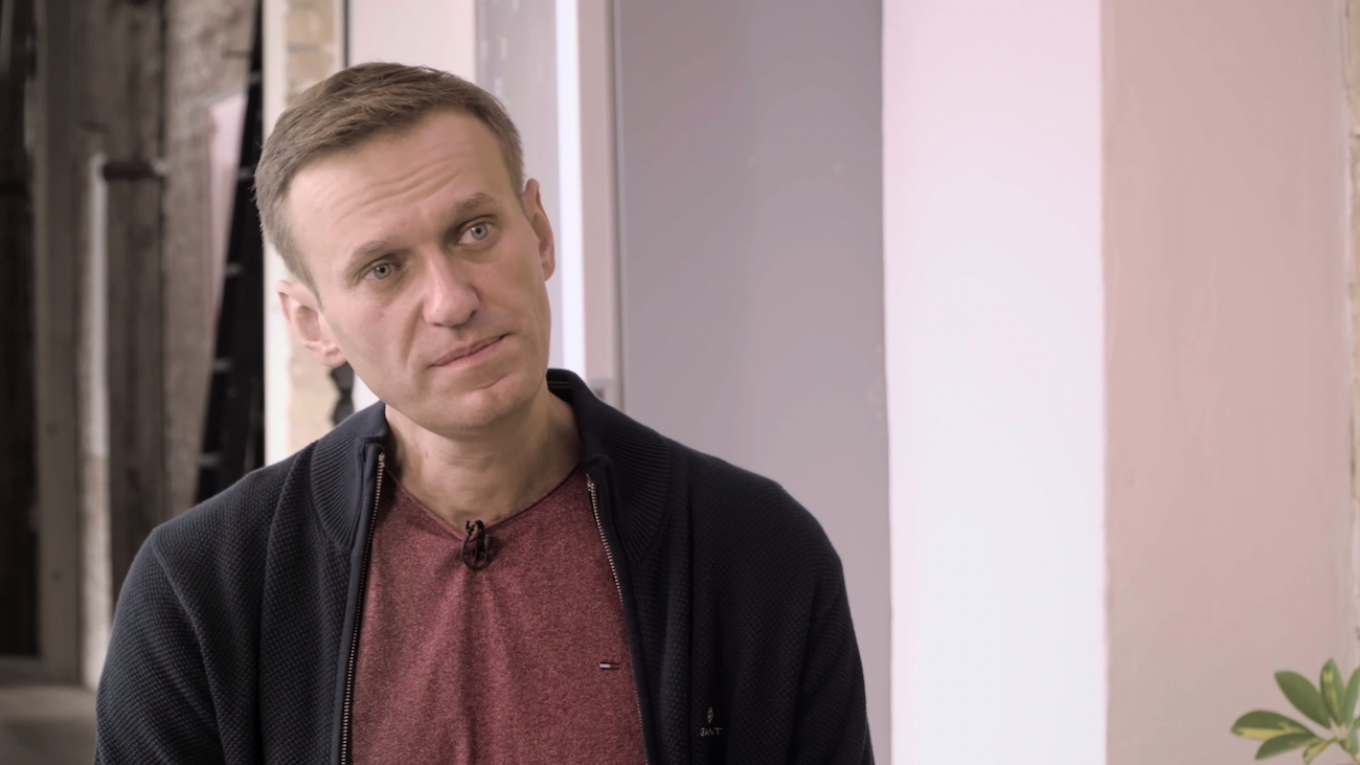
Opposition politician Alexei Navalny said Tuesday he hoped to return to Russia within months as he recovers in Berlin from poisoning that he says was ordered by the Kremlin.
In his first interview for a Russian audience, Navalny spoke Tuesday to a popular YouTube blogger, Yury Dud, in a video that has been already viewed more than 1.8 million times.
Looking thin but smiling and lively, the 44-year-old anti-corruption campaigner told Dud he wasn’t sure how long he will stay in Germany, where he is undergoing physiotherapy.
“It could very well be three weeks or two months. Definitely not a year,” he said, adding that doctors have admitted they have little experience of such a case.
Navalny was medically evacuated to Germany in late August after falling ill on a plane and spending several days in a Siberian hospital.
Tests by a German military laboratory found he was poisoned with the Soviet-designed nerve agent Novichok.
“I rule out the option” of not returning to Russia, said Navalny, who was visited by German Chancellor Angela Merkel while he was in a Berlin hospital.
He showed his trembling hands, saying he is working to restore his movement after Novichok caused nerve damage. He also admitted difficulty with mental arithmetic.
A ‘Kremlin order’
The use of Novichok is “circumstantial evidence that this was of course a Kremlin order,” he said, suggesting that only a handful of people had access to the nerve agent.
“It’s maybe five people in the SVR (Russian foreign intelligence) and five people in the FSB (security service),” he said, ruling out a wealthy oligarch or someone involved in high-level corruption.
“My version is that this was done by either officers of the FSB or SVR on the order, of course, of Putin,” he said.
He described his poisoning as “quite a cunning operation.”
Russia insists its medical tests did not find poison in Navalny’s system and has not accepted Germany’s declarations, saying it requires more evidence.
Kremlin spokesman Dmitry Peskov said after the interview’s release that “so far nothing new has happened in the investigation” from Russia’s side, in comments to the RIA Novosti state news agency.
Russia has not launched a criminal probe over what happened to Navalny and has said it requires more evidence from Germany.
“Berlin is silent so far,” Peskov said.
Russia’s Levada polling agency found last week that 33% of Russians believe Navalny was deliberately poisoned, as state media has cast doubt on his illness.
Russian news agencies quoted Kremlin spokesman Dmitry Peskov last month as saying: “As regards his returning to Moscow, like any other Russian citizen, he is free to do so at any moment.”
